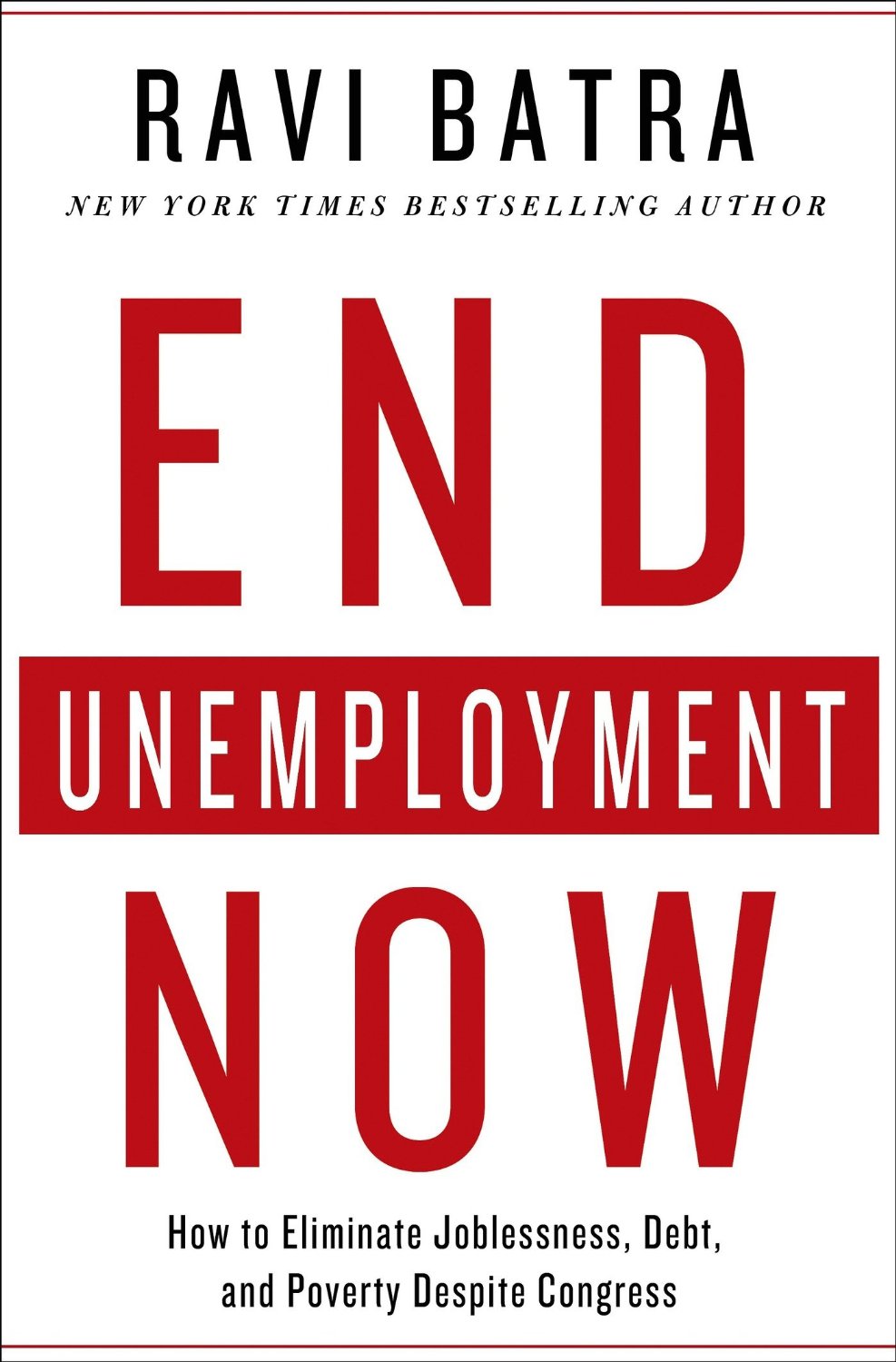After authoring 6 International best sellers, Professor Ravi Batra is going to release is another thought provoking and exciting book titled “End Unemployment Now“. He proposes that this can be done without help of dysfunctional congress. While I am excited about it and looking forward to read his book, below is the summary about his new book which is available for pre-order on Amazon now. The book would be available in book stores starting 12 May 2015.
Professor Batra has also cited my book “Mass Capitalism : A Blueprint for Economic Revival” in his upcoming book.
About End Unemployment Now: How to Eliminate Joblessness, Debt and Poverty Despite Congress
The year 2010 marked when the National Bureau of Economic Research declared an end to the Great Recession. The economy had shed over six million jobs in 2008 and 2009, but few had been recalled to work by 2010. Today, government policies have yet to make a significant dent in unemployment. In End Unemployment Now, Ravi Batra explores why this is the case. He explains how joblessness can be completely eliminated—in just two years, and without the help of our painfully incompetent Congress. The President and the Federal Reserve have the legal authority to generate free-market conditions that will quickly end the specter of unemployment, all without involving Congress.
Some examples of how to end unemployment without congressional intrusion:
• Creating a bank by the FDIC to compete with banking giants and then charging only 5% interest rates on credit card balances, instead of the standard 10-35% seen today
• Banning mergers among large and profitable firms, as such mergers directly cause layoffs and reinforce monopoly capitalism
• Aid to small businesses in the form of cheap loans and government contracts, because small firms have been real job creators since 1980, while Big Business has been a job destroyer
• Offer retiree bonds to increase the incomes of pensioners who live on savings and whose incomes have been practically destroyed by the collapse of interest rates
• Bring oil prices down to $20/barrel, which would lower a gallon of gas to $1.50
Some Salient Features of “End Unemployment Now”
Ever since the Great Recession that started in 2007, the United States has been mired in poverty, joblessness and a mountain of debt. With Congress and the president constantly at odds, the public is clamoring for a fresh approach to our economic problems, and this book delivers just that. Salient features of the book are:
1. The main cause of our myriad troubles is monopoly capitalism, which is a system dominated by giant companies that charge high prices, pay low wages and exact huge productivity from employees. High productivity raises supply and low real wages restrain consumer demand. This way supply constantly exceeds demand, and generates layoffs. So the solution lies in breaking up the behemoths and returning to free markets, where small firms engage in price and quality competition.
2. That requires new legislation and the cooperation of Congress, which itself is either divided or beholden to monopoly capitalists. So we can’t count on the legislature.
3. However, the president can bring about a competitive-capitalism effect, though not actual free markets, without recourse to Congress.
4. A competitive-capitalism effect occurs when, through certain official proclamations or policies, a market arrives at a similar outcome that would prevail in the presence of small firms operating as competitive enterprises.
5. With the help of the agencies such as the FDIC and the CFTC that work for him, the president can bring about this effect in several industries including banking, oil and gasoline, pharmaceuticals as well as foreign trade, among many others.
6. The FDIC has the legal authority to start its own bank, which could compete with banking giants and bring down interest rates on credit card balances from the current range of 15 – 30 percent to just 5 percent.
7. The CFTC can legally raise margin requirements for oil futures to control speculation and bring petrol price down to $20 per barrel from the triple digit levels that prevailed until mid-2014, in spite of a relentless decline in American petroleum imports. In 1998 even a puny fall in these imports brought oil down to just $12 per barrel.
8. The president and the Federal Reserve should and can eliminate our trade deficit by doing what China and Japan do; he can offer an export-oriented exchange rate to raise our exports to the level of our imports.
9. The measures described above will raise consumer demand and create at least 5 million manufacturing jobs within a year. They will help retire federal debt, slowly but surely, and put an end to poverty.


Recent Comments